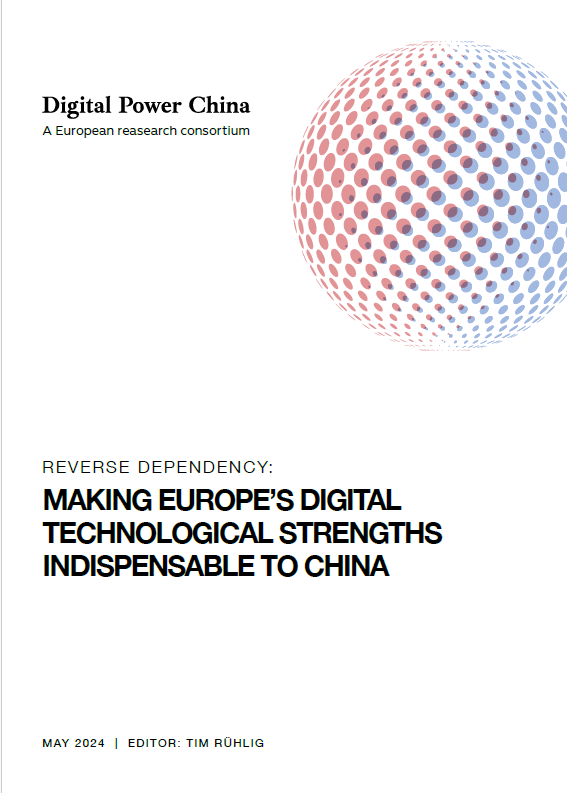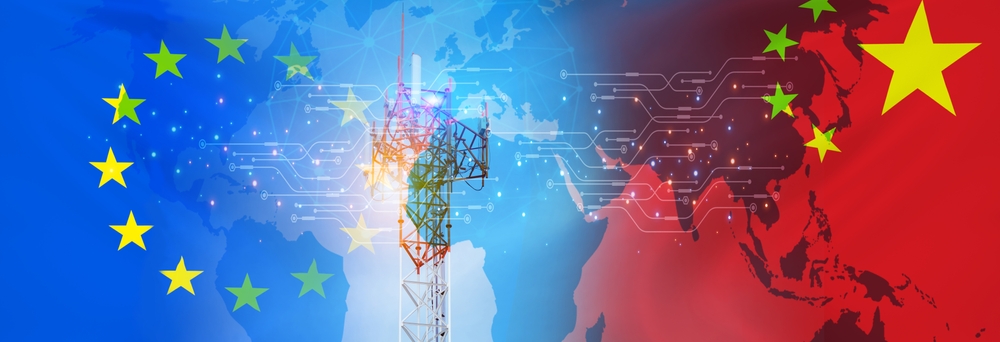Critical Raw Materials: What Chinese Dependencies, What European Strengths?

In adapting to growing geopolitical competition over digital technology, the EU and the UK are striving for economic security and technological sovereignty. European policies focus on reducing critical over-dependencies on China. This de-risking is a necessary process of adaptation to the new geopolitical realities.

The previous report of the Digital Power China consortium, of which Ifri is a participant, contributed to this policy objective by differentiating between diverging risk profiles across several emerging and foundational technologies, and proposing concrete policy instruments. However, current de-risking policy ignores the fact that it is virtually impossible to reduce strategic dependencies to a degree that provides the economic security and technological sovereignty the EU and the UK seek. The cost of such decoupling would be enormous and, for good reason, nobody is realistically willing to pay such a price. Technological ecosystems are based on a highly transnational division of labour and all actors are likely to remain interdependent for the foreseeable future. China’s technological advancement continues to rely on the outside world, including Europe.
Under these circumstances, Europe should complement its policy with policies that help to maintain reverse dependencies and keep it technologically indispensable to China. Each technological ecosystem requires a different mix of policies that aim for “autonomy” or “strategic entanglement”. However, reverse dependencies on China should be more prominently factored into European policy.
It is arguable that the logic of interdependence has not prevented Russia from violating international law and attacking Ukraine. Indeed, the high technological and economic costs are no guarantee that the PRC will not act against European core interests. For this reason, Europe must reduce its strategic dependencies on China, as it is currently doing. However, in the absence of a feasible decoupling strategy, maintaining a high cost for China is the best of all imperfect policy options to complement – rather than replace – efforts to reduce strategic dependencies. The PRC is in the middle of a structural economic transformation and economic growth is still considered vital for the legitimacy of the rule of the Chinese Communist Party (CCP). Security considerations are gaining in importance relative to economic development, but this does not mean that the Chinese leadership does not consider a further deterioration in economic growth to be a threat to its power. In other words, while no guarantee, imposing economic and technological cost still has a fair chance of shaping the considerations of the CCP leadership.
In 12 concrete cases, this report assesses Europe’s technological strengths and the potential leverage they might carry. The character of European technological indispensability, the degree of leverage and mechanisms for utilising this, as well as the policies that Europe should put in place all vary across the technological areas analysed in this study.
"CRITICAL RAW MATERIALS: WHAT CHINESE DEPENDENCIES, WHAT EUROPEAN STRENGTHS?"
Ifri's John Seaman, Florian Vidal, and Raphaël Danino-Perraud, contributed an analysis on the question of critical minerals.
China has come to dominate the supply chain for many critical raw materials. Despite the premium placed on bolstering self-reliance, however, China is also and will remain dependent on imports of a number of mineral resources that are vital to achieving Beijing's hightech ambitions. It is on this dependence on third-party producers that Europe might be able to enhance its relevance and exercise a level of influence over the next 10-15 years.
This will require more robust, integrated and strategically oriented resource and mining diplomacy, as well as a more concerted effort to develop European competencies. Europe's interest in reducing dependence on China and diversifying mineral supply chains ultimately matches that of mineral producers, which seek to generate economic development opportunities at home.
Europe must look to follow through on the promise of responsible, sustainable and supply-chain enhancing partnerships with producing countries, and in parallel ensure a level of convergence with allies and demand-side partners on how to approach the issues facing the minerals sector in the light of the green and digital transitions.
>>> Find the full report on the German Council on Foreign Relations' website.

Available in:
Regions and themes
Share
Related centers and programs
Discover our other research centers and programsFind out more
Discover all our analysesA Transatlantic Defense Industrial Base? Two Contrasting Views
The evolving landscape of global defense cooperation has brought the transatlantic relationship between the United States (US) and Europe into sharp focus. As geopolitical tensions rise and the threat environment becomes more complex, the question of how Europe can best ensure its security while navigating its relationship with the United States has become paramount. This double feature report offers two contrasting views on the dynamics of US-Europe defense industrial relations, highlighting the challenges and opportunities that lie ahead for both parties.
Deep Precision Strikes: A New Tool for Strategic Competition?
Reaching deep into the enemy’s system to weaken it and facilitate the achievement of operational or strategic objectives is a key goal for armed forces. What capabilities are required to conduct deep strikes in the dual context of high-intensity conflict and strengthened enemy defenses?
Return to the East: the Russian Threat and the French Pivot to Europe's Eastern Flank
Russia’s full-scale invasion of Ukraine on February 24, 2022, has flung Europe’s Eastern flank into a new phase of strategic confrontation. It has had a major effect on France’s position, which was previously somewhat timid, leading it to significantly reinforce its deterrence and defense posture in support of the collective defense of Europe, in the name of strategic solidarity and the protection of its security interests.
Military Stockpiles: A Life-Insurance Policy in a High-Intensity Conflict?
The war in Ukraine is a reminder of the place of attrition from high-intensity conflict in European armies that have been cut to the bone after three decades of budget cuts. All European forces have had to reduce their stocks to the bare minimum. As a result, support to Ukraine has meant a significant drain on their operational capabilities. A significant amount of decommissioned systems were also donated, due to the lack of depth in operational fleets.
















